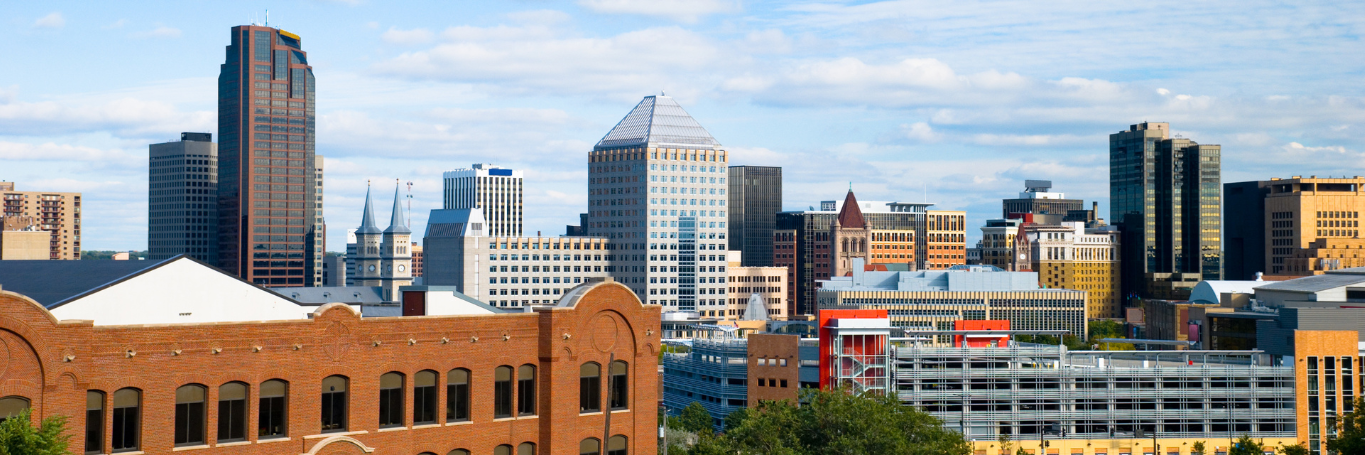
Industrial and Non-Industrial Jobs and Land Use in Saint Paul, MN
Saint Paul, Minnesota, is an example of a city that was crucially molded by the manufacturing sector but where industrial activities struggle to maintain a foothold in the present day. A number of household name companies, including Whirlpool Appliances and Hamm’s beer, began and grew in Saint Paul, supporting its manufacturing workforce and shaping its residential, commercial, and industrial spaces for decades. Since the era in which Saint Paul was shaped so significantly by large-scale manufacturing, the face of urban industrial land use has changed. Today, light industry plays a much greater role, and often takes forms that might not immediately be identified as industrial use: microbreweries, body shops, laboratories, flex spaces, and other types of facilities dynamically occupy industrial land across the city.
ICIC worked with the Port Authority for two years to research industrial land use and employment patterns in Saint Paul from a number of angles. In 2022, we conducted an analysis to determine the impact of each type of land use in Saint Paul on the city’s revenues and expenditures. In 2023, we reported on broad industrial employment trends from 2008 to 2022, examined the geographical distribution of industrial jobs in the city, estimated the combined economic impact of the Port Authority business center developments, and projected the impact of a mixed-use light industrial development that is currently under construction.
The study found:
- Properties occupied by light industrial land use in Saint Paul are important players in funding the city budget, returning $1.45 for each dollar the city spends on them.
- Jobs in industrial sectors consistently paid higher average wages than jobs in non-industrial sectors every year from 2008 to 2022.
- Industrial jobs are decentralizing from Saint Paul’s industrial zones and are becoming less concentrated in historic manufacturing hubs across the city.
- Businesses located in the Port Authority’s redevelopment projects (‘business centers’) have an enormous economic impact on the local economy; in 2022, they supported $9.3 billion in economic activity and 43,491 jobs in the city through direct, indirect, and induced spending.
While public perception of industrial land may be dominated by concerns about property value, pollution, noise, and environmental harm, it is crucial to recognize the other side of the story. There are a number of ways in which industrial land use is integral to the economic and social fabric of a city and can contribute to the goals of improving the standard of living and economic well-being of residents and workers in cities such as Saint Paul.
